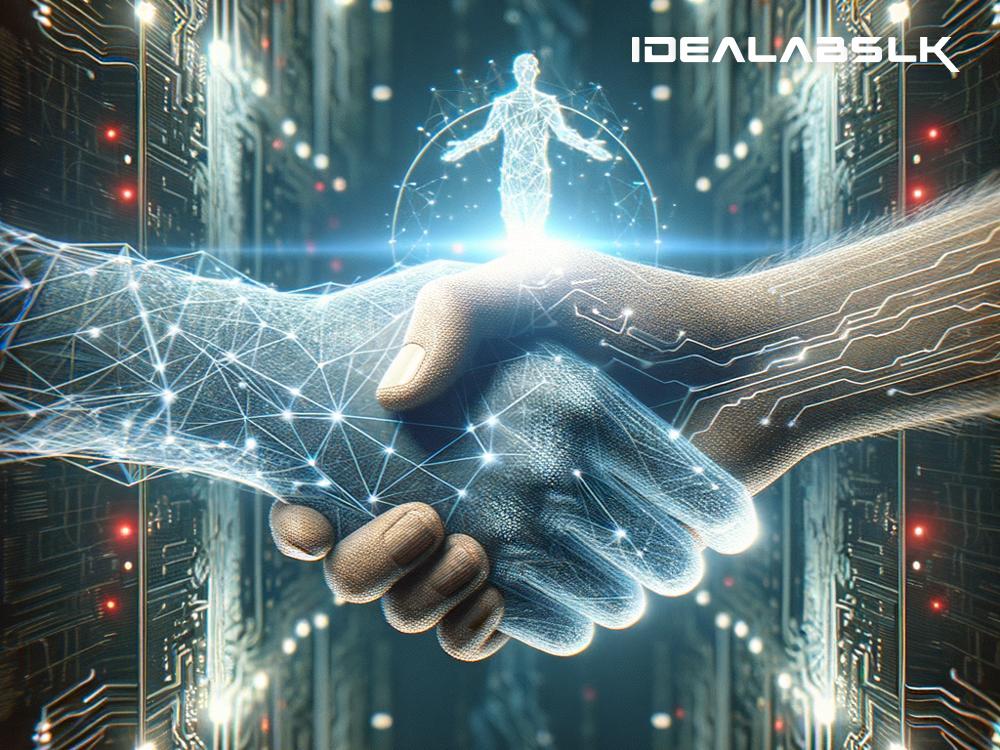The Rise of Smart Contracts: Welcome to the Future of Agreements
In today's rapidly evolving digital world, a new term is making waves across industries: smart contracts. Imagine you're buying a car or renting a new apartment. Traditionally, this involves a lot of paperwork, middlemen, and, let's be honest, a whole lot of trust that everyone will do what they say they will. Now, imagine a world where these agreements can be made simpler, faster, and more secure, without the need for a middleman. Welcome to the world of smart contracts!
What Exactly Are Smart Contracts?
Smart contracts are like traditional contracts, but with a twist. They are self-executing contracts where the terms are written into lines of code. These contracts are stored and replicated on a system known as a blockchain, making them secure and virtually tamper-proof. When the conditions of the contract are met, the actions are executed automatically. Think of it as a vending machine for legal agreements – you select what you want, meet the conditions (input the correct amount of money), and the machine automatically gives you your desired item (fulfills the agreement).
How Did Smart Contracts Come About?
The concept of smart contracts was first proposed in the early 1990s by a computer scientist named Nick Szabo, long before blockchain or Bitcoin were on the scene. However, it wasn't until the advent of blockchain technology that smart contracts could truly come to life. Blockchain's secure, decentralized ledger provides the perfect environment for executing and recording smart contracts.
One of the most well-known platforms for creating and executing smart contracts is Ethereum. Launched in 2015, Ethereum expanded upon the blockchain concept introduced by Bitcoin, adding the ability to code and run smart contracts and host decentralized applications (DApps).
The Advantages of Smart Contracts
The rise of smart contracts is not just by chance. They offer several advantages over traditional contracts:
-
Trust: Because smart contracts are executed by the blockchain, there's no need to rely on a third party to enforce the agreement. The blockchain verifies and executes the contract automatically.
-
Transparency: All parties involved can view the terms and conditions of the contract. This level of transparency helps reduce the potential for disputes.
-
Speed and Efficiency: Without the need for paperwork or third-party intermediaries, transactions can be completed much faster. Plus, automating tasks reduces the potential for human error.
-
Security: Blockchain's encryption technology makes smart contracts incredibly secure. Once a contract is created, it cannot be altered.
-
Savings: By eliminating intermediaries and streamlining processes, both time and money can be saved.
Where Are Smart Contracts Being Used?
Smart contracts are still in their early stages, but they're already finding applications in various sectors:
- Finance: From automating insurance claims to facilitating secure and transparent financial transactions, smart contracts are revolutionizing the way we think about finance.
- Real Estate: Smart contracts can streamline property sales, reducing the need for extensive paperwork and expediting the process.
- Supply Chain: By providing a transparent record of transactions, smart contracts can help verify the authenticity of products and ensure compliance with agreements.
- Voting: With their transparency and security, smart contracts could potentially be used to create tamper-proof voting systems.
The Future of Smart Contracts
As technology evolves, the possibilities for smart contracts are virtually limitless. We are only scratching the surface of what can be achieved. Issues like legal recognition and figuring out how to deal with unintended consequences or errors in the code are hurdles that are being addressed as the technology matures.
In Conclusion
The rise of smart contracts marks a significant shift towards a more automated, transparent, and secure digital world. While there are still challenges to be overcome, the potential benefits are too significant to ignore. Whether simplifying complex transactions, reducing costs, or creating a more trustworthy digital environment, smart contracts are setting the stage for a future where digital agreements are the norm, not the exception. Welcome to the future of agreements, powered by the incredible potential of smart contracts.

